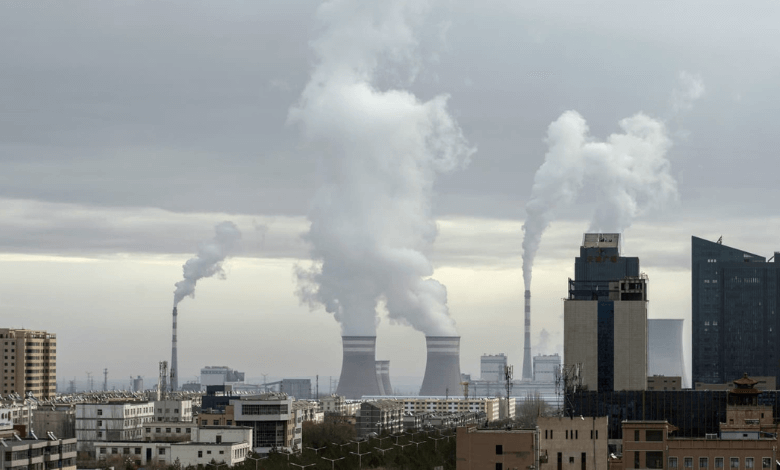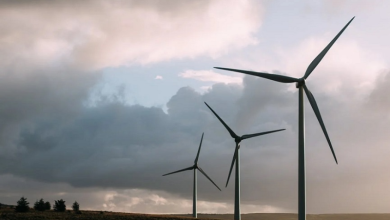Why is China saying Phasing Out Fossil Fuels is “Unrealistic”?

Amidst the bustling corridors of global climate discourse, China’s chief climate envoy, Xie Zhenhua, has unfurled a compelling narrative—one that boldly challenges prevailing notions.
In his pronouncement, Xie asserts that the complete abandonment of fossil fuels is a lofty ambition, indeed, but ultimately unattainable. Instead, he contends that these climate-warming energy sources must retain a vital role in ensuring global energy security.
China: The Number One Consumer of Fossil Fuels
China, the world’s foremost consumer of fossil fuels, including the prolific coal and oil, has found itself under the unyielding gaze of a world grappling with the ever-mounting urgency of climate change. Xie’s remarks came as a response to comments made by ambassadors during a forum in Beijing, a precursor to the forthcoming COP28 climate summit scheduled for November in Dubai.
It is through a rare lens—a copy of Xie’s speech and a recording of the event obtained by Reuters—that we delve into this complex discourse.
The global community finds itself teetering on the precipice of heightened climate ambition, pressuring nations to commit to more audacious climate pledges.
This is further catalyzed by a U.N.-led global “stocktake” that unequivocally proclaims the need for an additional 20 gigatons of carbon dioxide reductions within this decade to stave off the perilous threshold of a 1.5-degree Celsius temperature increase. This “stocktake” is destined to take center stage at the imminent COP28 climate summit, with activists fervently hoping it will conjure the political will required to set unambiguous targets for the cessation of coal and oil utilization.
China’s Argument
Xie, however, counters this fervor with a pragmatic argument—one rooted in the very essence of economic sustenance. He contends that the erratic nature of renewable energy sources and the nascent stage of pivotal technologies like energy storage render a total abandonment of fossil fuels unworkable. In his eyes, fossil fuels remain an inextricable element of global economic growth, a reality that cannot be circumvented.
“It is unrealistic to completely phase out fossil fuel energy,” Xie steadfastly affirms, reaffirming China’s position as it prepares to represent itself at COP28.
The 2021 climate talks in Glasgow witnessed China’s pioneering efforts to reshape the narrative. It succeeded in modifying the final agreement’s language, shifting the emphasis from “phasing out” fossil fuels to a more nuanced “phasing down.” China has also expressed its support for amplifying the utilization of abatement technologies, notably carbon capture and storage.
While the absolute cessation of fossil fuel use may not be an imminent prospect on the negotiation table at COP28, Xie unveils China’s willingness to engage in discussions about establishing a global renewable energy target, provided such targets factor in the economic disparities that distinguish one nation from another.
Additionally, Xie warmly embraces the assurances extended by his U.S. counterpart, John Kerry. The promise of a $100 billion annual fund to assist developing nations in their adaptation to climate change is a welcome gesture, albeit one that Xie views as a mere drop in the vast ocean of need.
China and the United States, the world’s twin titans of greenhouse gas emissions, recently resumed high-level climate dialogues after a hiatus triggered by U.S. politician Nancy Pelosi’s visit to Taiwan—a region claimed by China. Xie offers a stark reminder that climate change cannot be separated from the broader geopolitical tensions that characterize the relationship between these two nations. The lingering issue of U.S. trade sanctions on Chinese solar panels looms as a persistent point of contention.
Furthermore, Xie cautions against the perils of protectionism—a stance that could inflate the cost of solar panels by 20-25%, thereby hindering the transition to cleaner energy sources. He passionately implores nations not to “politicize” collaborative efforts in the realm of new energy.
In closing, Xie resolutely reaffirms China’s unwavering opposition to the E.U. Carbon Border Adjustment Mechanism, which seeks to impose carbon tariffs on imports from China and other nations.
Also Read : UK’s Pragmatic Pivot on Net Zero
China’s nuanced stance on these multifaceted global issues serves as a poignant reminder of the intricate interplay between economic interests, the energy transition, and the labyrinthine world of climate diplomacy.



